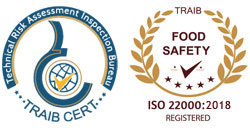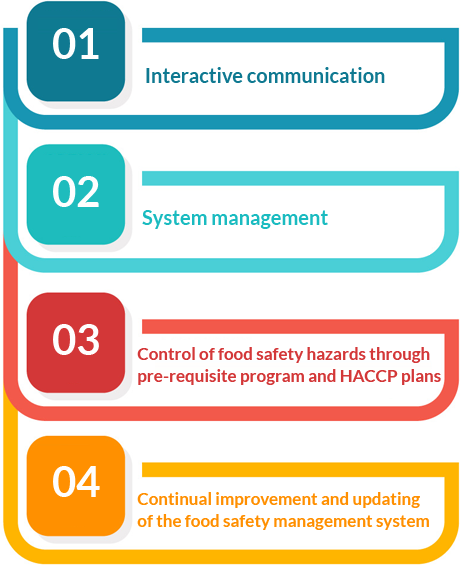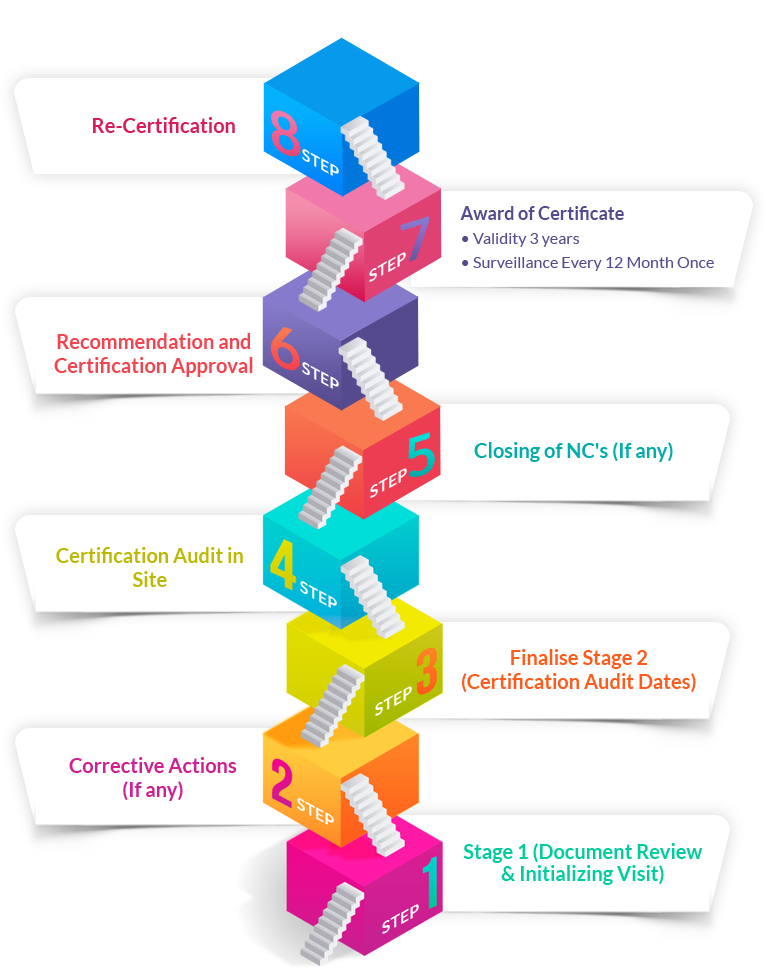


During last decades, a stream of ample food scandals has given evidence for consumers around the world to have higher concern over the hygiene and safety standard of the food.Numerous reports pertained to supply chain shortcomings has raised enough questions over consumers’ health and safety.Concerning the need for consumer health, additional measures were laid out with the main objective to dramatically reduce or eliminate risks and improve food safety.Such measures caused the producers, processors and food distributors to prove their ability to fulfill the legal requirements in the practice and within the area of safety and hygiene within all food web.
The history of inspection over food safety is long and it all started with the purity testing of brewed drinks during ancient times. However, it was only during 1906 that the concern over food safety began to raise and a law was established, in relation to food safety control in the USA to adopt preventive approach to increase food safety.
It is based on process control system and is designed to identify and prevent microbial and other hazards in the entire food chain and includes steps to prevent and detect problems through a systematic way.The standard combines generally recognized key elements to ensure food safety, including:

The standard harmonizes various existing national and industry certification schemes that delivers a common global framework of safety requirements for all organizations in the food supply chain, including crop production, processing, distribution, and related operations ensuring food safety
ISO 22000 extends benefits for the management system approach of the ISO 9001 Quality Management System with Hazard Analysis & Critical Control Points to ensure delivery of safe food products to its customers.
In order to Identify, evaluate, and control the food safety hazards to avoid harming the consumer directly or indirectly it mandate for any food industry to assess and demonstrate conformity of the product in relation to food safety.This International Standard allows an organization, such as a small and/or less developed organization (e.g. a small farm, a small packer-distributor, a small retail or food service outlet), to implement an externally developed combination of control measures to consistently provide safe products.This is becoming more and more important as customers demand safe food and food processors require that ingredients obtained from their suppliers to be safe.
Having the right food safety standard for your business can change everything right from the level of efficiency to the attrition rate.This International Standard ISO 22000 specifies requirements that enables an organization
One of the major advantages of being ISO 22000 certified organization is that, it proves the ability to control different hazards in supply chain and understand new processes and procedures to be in place to improve the efficiency. This would help lift the overall morale of your employees too as they would want to work in an organization that delivers a high level of quality. An ISO 22000 will definitely help you take your organization to the next success level of the industry.
Established in 2005, ISO 22000 was designed as an accessible, globally accepted standard, and is applicable to organizations of all sizes, involved in any aspect of the food supply chain.Standard is applicable to all types of organizations irrespective of size, nature or geography of all Food Chain from farm to feed, primary producers, food manufacturers, transport & storage operators and industry such as producers of equipment, packaging, cleaning agents, additives, ingredients and related to food. The organization should demonstrate its ability to control food safety hazards, the requirements as specified in the ISO 22000,ensuring that food is safe at the time of human consumption.
A concise list of organizations that may need to consider ISO 22000 may include:
Of course, the previous catalogue does not exhaust the list of organizations that could benefit from the use of this standard.ISO 22000 applies to all organizations directly or indirectly involved in the food chain, not just the ones listed here. However, ISO 22000 functions well only when the interdependent methods between food producers, suppliers, and customers are understood and managed effectively.If your business revolves around food and food supply, it is an absolute must to implement a food safety management system in your organization. Such a certification will define the quality that is being delivered by the system and once you have that under control, you would be able to increase the output of your organization.
One of the main advantage of having such a certification or standards makes it an ideal basis for implementing a comprehensive, cost effective food safety management system to control the different hazards in your business chain.Such preventive control systems with documentation and verification are widely recognized by scientific authorities and international organizations as the most effective approach clear understanding of responsibility and provisions for accountability at all levels.
Some of the key benefits of implementing ISO 22000 Standard are:
ISO 22000 is a worldwide certificate standard that characterizes the necessities of sustenance well being administration frameworks everywhere throughout the world. However, unlike other FSMS Certification programs ISO 22000 is much flexible that the organization identifies and implements the appropriate programs as there are no specific requirements for the prerequisite programs (PRPs). PRPs are generic controls implemented by organizations in the food industry to ensuring hygienic conditions in the processing environment.
The ISO 22000 standard contains the specific requirements to be addressed by the Food Safety Management System which includes,

The objectives of the requirements listed above enables an organisation to build and operate a food safety management system within a well-defined and clear framework that is flexible to your business needs and expectations.
We TRAIBCERT arean accredited ISO certification body consisting of food safety experts who possess extensive knowledge and experience to guide you successfully through the entire certification process. Our complete ISO 22000 certification service services starts right from the training and per-audit assessment and extend providing ongoing support through follow-up audits and certification renewal.
At TRAIBCERT, we help every player in the food supply chain to certify their FSMS to ISO 22000 enabling you to demonstrate that the framework of a structured management system is incorporated into the overall management activities of the organization.Our expert food safety auditors can work with you to guarantee your products are produced, prepared, packaged, distributed and certified to the highest standards of food safety.
With an ISO 22000 certification by TRAIBCERT you can
The most significant benefit of ISO 22000 certification are tangible and demonstrable improvements in organizational performance with a greater level of assurance in the area of legal compliance, and we help you achieve that. Our holistic approach of process auditing minimizes the risk of system lapses and enhances customer and public confidence in the FSMS of organizations.We also offer auditing and certification services.
You can transfer the certificate at any stage to us during surveillance/ recertification.
To transfer any certificate IAF has laid down New rules –
So what I need to DO.
Whether you're starting the certification process, looking to transfer or just need to discuss options for your business, contact our expert team who will guide you through the process.
